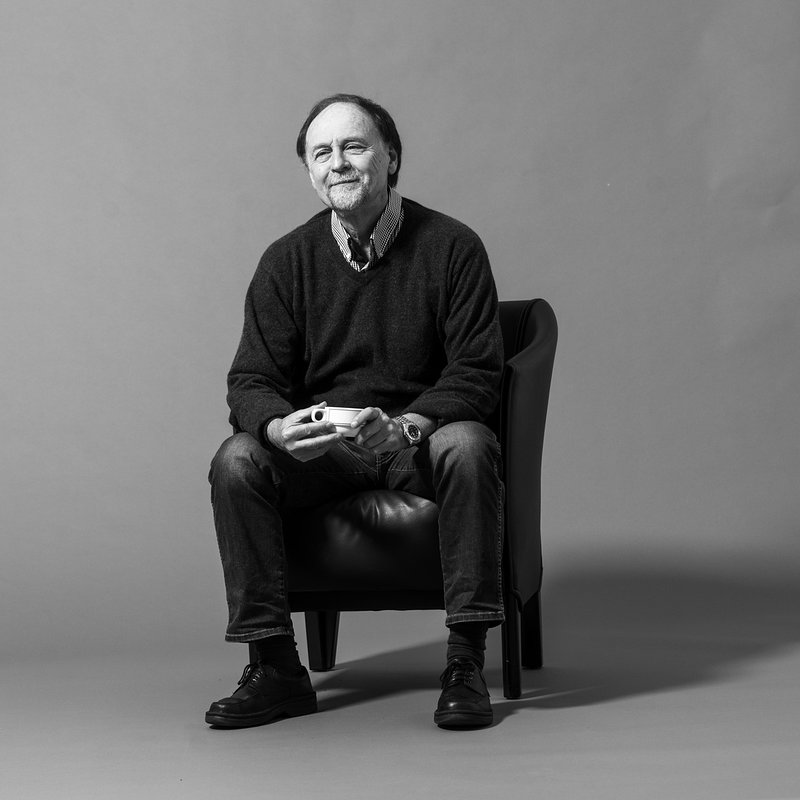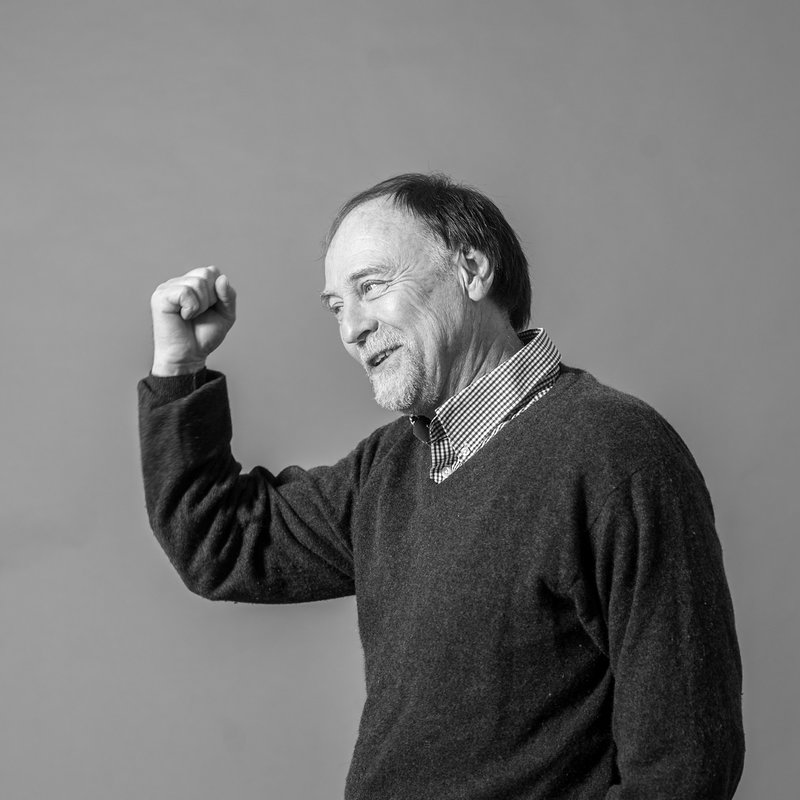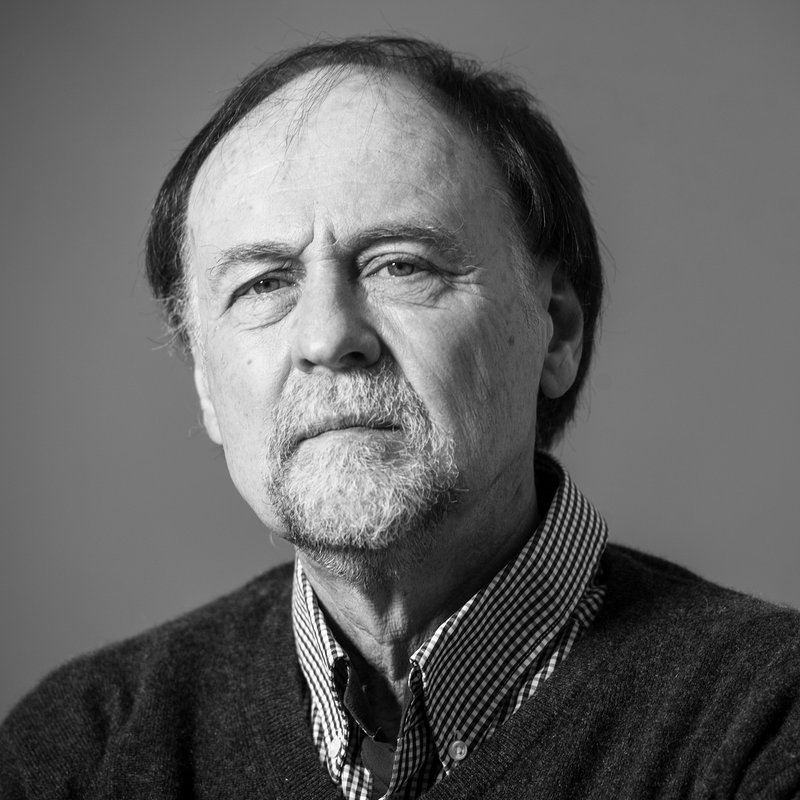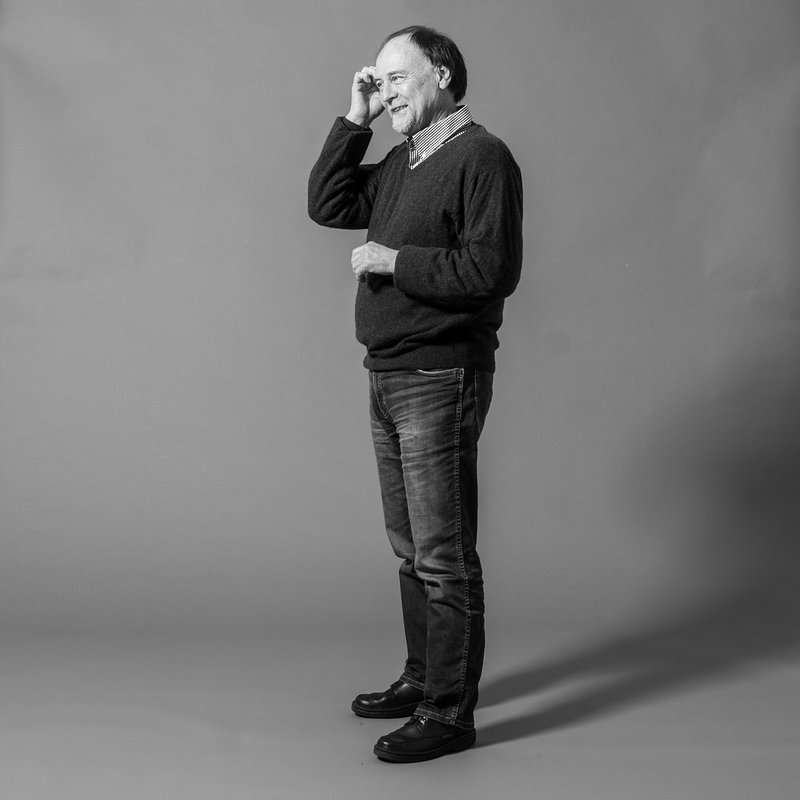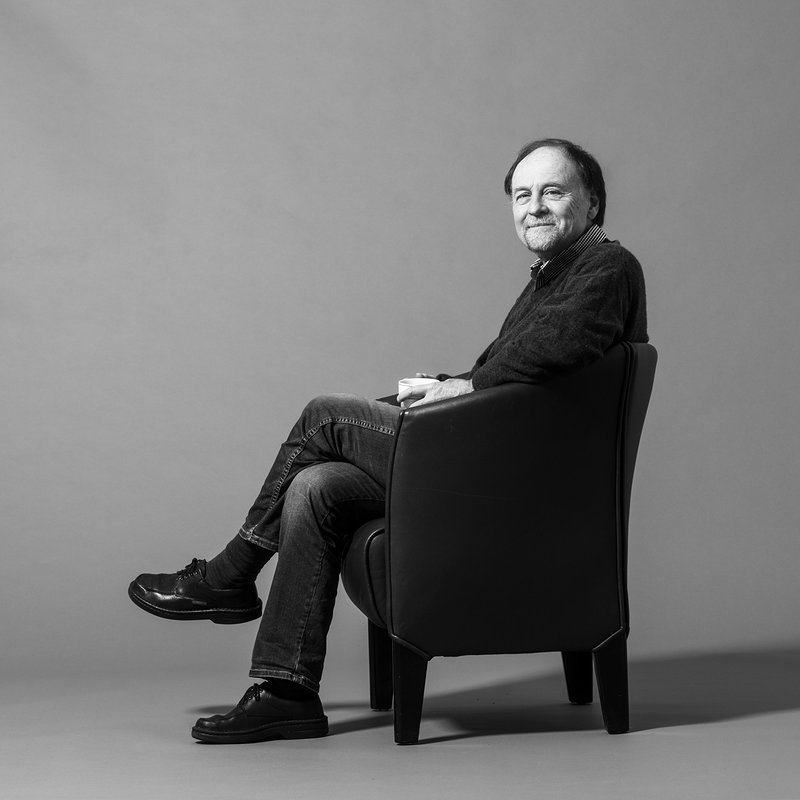Issue 10 / April 2015
We are not alone!
Stefan Klein
Stefan Klein: Herr Schmid-Hempel, are you familiar with the horror classic Alien?
Paul Schmid-Hempel: The film is superb. There are a number of sequels – but the first was the best.
SK: It was released in 1979 when I was a teenager and it made for a great many sleepless nights. Do you remember the first horrific appearance of the alien? An octopus-like creature from a distant planet entwining itself around an unsuspecting astronaut – but soon thereafter it lets him go. Everything seems to be okay. And then the alien suddenly bursts from the chest of this astronaut! Of course the man dies and the alien vanishes into the depths of the space ship.
PSH: Until the late 1970s it was thought that only mild parasites are good parasites. The parasite should not harm – at least too badly – its host. Yet at the time when the film was showing it began to be recognized that a parasite can be much more virulent, for its success is measured by the number of hosts it ultimately infests. As long as the parasite is in a position to migrate to another host then it can even kill its host.
SK: In preparing our conversation it was fascinating to see just how realistic the film Alien is. For instance the South American botfly Dermatobia hominis propagates itself exactly like the sinister creature from space – it glues its eggs to the bellies of mosquitoes; should the mosquito land on a human then the larvae hatch and bore into the host organism where they grow and then break through the skin a few weeks later.
PSH: A colleague of mine once brought back home just such an infection from the tropics. He didn’t want to have it treated because he was interested in just how it would develop.
SK: And what became of him?
PSH: He suddenly noticed how something was moving on his shoulder. That was the larva of the fly. He got off easily. He’s still working as a parasitologist.
SK: For many people such scenarios are among the most repulsive they can imagine. What impelled you, as a biologist, to dedicate yourself to parasites of all things?
PSH: We work predominantly with single-cell organisms that lodge themselves in bumblebees and other social insects. Under the microscope they are very beautiful to behold and not at all loathsome. Such parasites have invented unbelievably refined strategies for manipulating their host and surviving in him. For instance they hide in certain tissues where the immune system cannot see them; with insects that is their fatty substance, and similar parasites dwell in our eyeballs. They deceive the immune system with counterfeit molecules. I still find it fascinating trying to catch them in their various tricks. When I first began in the field it was my curiosity which drove me to explore the unknown – there is something out there which we’re aware exists, but no one at the time realized how significant parasites were in nature.
SK: One might imagine them as living on the periphery of the great realm of biology.
PSH: That’s what was thought for a very long time. But today we know that parasites make up the majority of organisms on the earth. No one knows their exact number. Some hundred different varieties, for example, live on as commonplace a fish as the perch.
SK: How many different kinds of freeloaders live on and in me?
PSH: You certainly play host to all kinds of harmless flagellates in your intestinal tract. And possibly you have Toxoplasma gondii in your musculature and your retina. More than half of all Europeans are contaminated with this single-cell organism, which in any event is normally not a problem. And almost everyone carries the herpes virus. All of these are parasites – forms that prey on their host, are detrimental to him, and which the host wants to actually be free of.
SK: Alien has an impressive final gimmick – the on-board computer of the spaceship has intentionally sent its crew to its death by dispatching it to the very planet that has been befallen by the alien. The machine had been programmed to seek out perfect life – perfect because of its indestructibility. Is it conceivable that parasites are superior to free non-parasitical creatures?
PSH: The concept “superior” is always dangerous. More informative and accurate is that parasites can completely reprogram the host’s behavior. It is astonishing and even appalling to see everything that occurs. As with all vertebrates, our genome is also full of retroviruses. Most of them first manifested themselves some years back through the Human Genome Project. No one currently knows what they all do. But there lurks the creepy fear that certain retroviruses manipulate our behavior.
SK: But we are not defenseless against viruses and micro-organisms, fleas and worms, which make themselves at home in our body and perhaps even affect our decisions. Every organism has an immune system and vertebrates possess an extremely capable and efficient one. In comparison, most parasites are rather simply constructed. Why can’t we ultimately wrestle them to the mat?
PSH: Because parasites are unbelievably mutable. Even within a certain species, each of them shows another face, if you will. That makes it difficult for the immune system to recognize the pests. Parasites also purposefully target and exploit weak spots in the immune system. Of course the host is constantly adapting to the threats posed by parasites, but these often have the decisive edge. In the last years we have recognized the degree to which the footrace between hosts and parasites is a driving force in evolution and to which we likely owe the fact that we are genetically so different and individually so various and that we have sex at all – for does it not strike you as odd that most creatures propagate themselves sexually?
SK: Sex as a means of reproduction is pitifully ineffective . . .
PSH: . . . and not only because it requires two parents to bring a single offspring into the world but since you as a successful and well adapted individual don’t pass on your entire genome but only half of it and then not in its original form but mixed with another – this seems absurd. Why should it be the case?
SK: The usual answer is that you don’t know if your genome will remain optimal should the circumstances of life change. Sex keeps the genetic deck shuffled. It continues to produce new combinations of genes and thus fosters a diversity that can survive in a possibly changed environment.
PSH: That is how evolutionary biologists have long seen the matter. But it is mostly the case that the environment changes only very slowly over a number of generations. On the other hand the price of sexual propagation is immediately paid by the parents. Seen from this standpoint, sex does not pay off. What does indeed change very quickly are the parasites.
SK: You mean that there are two sexes and they engage in sex simply to rid themselves of their freeloaders?
PSH: The theory stems from William Hamilton, the great English evolutionary biologist. It is not the only theory that explains sexual propagation but there is much to be said for it. For instance in New Zealand they investigated a species of snail which can reproduce itself both sexually and asexually. The more that such animals are preyed upon by parasites, the more often that they will then reproduce sexually. Apparently genetic diversity and therefore sex is the response to the constant threat of parasites. If this were not the case then we would have much more of the same old thing – a kind of genetic mishmash. It is in this way that we can thank parasites for our distinct individuality. Without them our world would be totally different.
SK: It is certainly helpful if your immune system functions somewhat differently from mine – which means that in the next flu epidemic only one of us will catch it. But I doubt whether this explains all genetic variations. You have blue eyes, I have brown. What can the various pupil pigmentations do against parasites?
PSH: You’re right. First it is really only about the genes that are essential for interaction with the parasites. But here reigns the greatest genetic diversity. Evolution is like a Potemkin’s Village. From a distance we only see a rather uniform facade. Whether someone has blue or brown eyes, you still recognize him as a human being. These external features are also fairly stable. But for the functioning of the organism the facade is in most cases rather unimportant. And when you look behind the facade you perceive an entirely other picture – everything is in motion, pathogens come and go, the immune system adapts itself, genes are activated and deactivated and over the generations the entire genome is transformed. And in the course of things sometimes these alterations also encompass a part of the facade – for instance when those genes which regulate eye color are coupled with others that provide for a certain immune reaction.
SK: As we know, Charles Darwin described evolution based on the beaks of finches – the various species had evolved because each of the Galapagos Islands had different food on offer and had thus favored a different type of beak. I presume that you would tend to view a certain kind of beak as part of that Potemkin facade alluded to earlier – in other words, the impulse behind evolution is less the worms that the birds peck than the worms in their intestinal tract.
PSH: I don’t assert that food, nesting sites and all the other things that evolutionary biologists have investigated over the years are unimportant, but it is true that today we perceive a new dimension of evolution. A fascinating new door has opened.
SK: Perhaps you are experiencing that which solid-state physicists discovered in the early twentieth century – it suddenly became clear to them that crystals would only appear to be massive; as a matter of fact they consist of atoms and empty space. And whoever understands these inner structures then understands crystals.
PSH: The situation is very similar. From what you might call an outside perspective we are then penetrating to a deeper level of nature. In this way we are able to perceive those subtle effects of evolution which only shortly before we couldn’t even imagine.
SK: For instance what I find fascinating is the bacteria Wolbachia. It can manipulate the sexual behavior of a host.
PSH: Wolbachia lives in the cells, mostly of insects. Whether you pick up a beetle, a butterfly or an ant, it has likely been infested since birth. In fact, Wolbachia provides for infected insects to only procreate with similarly infected mates. And if an infected insect couples with an uninfected one then the molecular signals of the parasites will make sure that no offspring emerge.
SK: The parasite breeds its hosts, as it were.
PSH: A diabolical strategy. All those insects that don’t allow themselves to be infected by Wolbachia will simply be eliminated.
SK: Though Wolbachia must pay a high price. When only one parent is infested there is no chance of spreading to the next generation.
PSH: That has its source in a kind of spite. But the strategy is still worthwhile. Moreover a lack of infected females is no problem at all for Wolbachia, for the parasite will then create the mothers that it needs; in other words Wolbachia can provide for gender reassignments. Molecular signals, which we are only just beginning to understand, create functional egg cells from the sperm cells of infected males. And then the feminized male can couple with another male and Wolbachia survives into the next generation . . .
SK: . . . and not at all to the detriment of the male-turned-female host, which has now been given a unique opportunity to reproduce itself. Obviously parasites can also be of benefit to their hosts.
PSH: Yes. It has recently emerged that Wolbachia protects the infected creature from certain viral infections. We don’t exactly know how this is done – but obviously the parasite has a vested interest in seeing that the host, its resource, is able to thrive.
SK: But by what right do you call the interloper a parasite? I would say that it has a symbiotic relationship with its host.
PSH: The conceptual language of biologists is seldom exact. The fact of the matter is that the host and the parasite develop together. The question is just how their conflict of interests is resolved. Their co-evolution can end disastrously, like with the Ebola virus, or it can emerge as a symbiosis.
SK: Or even in a merging of the freeloader and its host! Just think of the retroviruses that became part of our DNA. Perhaps even the mitochondria, our cells’ power stations, emerged from parasitical bacteria.
PSH: This process has also been substantiated. But what remains unclear is whether the antecedents of mitochondria were free-living parasites.
SK: In any event we can no longer do without them. If the host and its parasite have so closely converged then it renders superfluous the question as to who is manipulating whom. So why see the relationship between the host and its parasites as merely a conflict of interests?
PSH: I plead guilty to this. I, too, entitled one of my papers on the subject “War.” On the other hand it is clear that host and parasite don’t give anything away to each other for free. Behind the Potemkin facade there prevails an unceasing conflict of interests. One should not conceive of this struggle between host and parasite as some kind of decisive battle but rather as one of daily attrition whose consequences are not at all bad.
SK: Like in a marriage.
PSH: Yes (with a wink). Neither can do without the other, but because the partners have competing interests, they are always attempting to put one over on the other. Ultimately they have to make compromises.
More on: Paul Schmid-Hempel
Images: © Maurice Weiss
